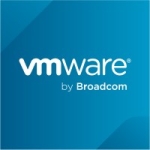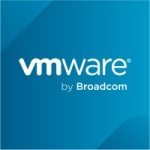What is our primary use case?
We leverage multiple services on the SAP Cloud Platform. Firstly, we utilize the BTP platform, which includes the Cloud Foundry and the CTI environment. Additionally, we have a new environment where we use our business studio application for developing custom applications tailored to our specific business needs and compliance requirements.
We also utilize workflow management and rapid deployment solutions for project management. Furthermore, we use MJCR applications in these environments with attributes that integrate with DSO for data synchronization and integration with various interfaces.
We also utilize SAP Analytics Cloud for financial reporting and consolidation of the entire environment. This includes session areas, digital boardrooms, group reporting, price environment, and live connections from ResSonar.
We also leverage Analytics Cloud for group reporting and business reporting modules.
Lastly, we make use of SAP C4C solution, specifically SysTrack, for basic CRM functionality, sales reporting, and organizational marketing purposes.
So we have different services depending on the specific needs and requirements. We fully implement and integrate CPI-certified systems in our organization. We also have business-certified systems. For SORN theory, we have technical specialists who handle system conversion and delivery.
What is most valuable?
When it comes to SAP Cloud Platform, the feature I find most valuable is the ability to leverage various services, such as the BTP platform. This allows customers to build their custom applications on BTP rather than customizing them directly on the SAP HANA system.
This approach avoids performance issues and reduces the high level of customization typically associated with development projects. By isolating customization to a separate platform, it becomes easier to manage and address any issues.
What needs improvement?
The main area that requires improvement in the SAP Cloud Platform, specifically within BTP, is cost management and application stability. We also face challenges with load balancing and other related issues.
Currently, we leverage the review of business applications and data usage within our organization. CTI has proven to be an excellent choice for integration, making it seamless and reducing the complexity of various integration scenarios. However, the major area that needs improvement is the development model for custom applications on BTP. SAP has introduced a low-code model that enables application development with less coding and more focus on data and visual building.
However, migrating existing applications from traditional coding methods, such as HTML or other programming languages, to the low-code model is not straightforward. It is time-consuming and involves reviewing the application model, which may discourage businesses from investing in this transition. Additionally, there are various requirements and layouts that need to be considered, which further complicates the process.
Many businesses are hesitant to invest in this area as it involves significant effort and may result in data loss, especially when personnel change within the organization before requirements are provided. It's an area that requires attention.
It becomes challenging for developers to understand the business logic and requirements, making it difficult for the team to work on application migration and transition. Moreover, SAP has released a publication regarding the migration to VMware Cloud, and compatibility issues have arisen. This affects the seamless migration that SAP promotes, as there are thousands of objects that are not compatible with NetCloud. These objects are critical to the business, and without them, the transition cannot be successful.
Technical complexities and the difficulty of migrating one application to another create significant obstacles. Businesses lose interest in such migrations due to the time and technicality involved. While the technical team understands the complexities, the business side is primarily concerned with using new features and staying up-to-date. This discrepancy becomes a major bottleneck, making the transition from one location to another extremely complex.
For how long have I used the solution?
I have been using this solution for five years.
Buyer's Guide
SAP Cloud Platform
October 2025
Learn what your peers think about SAP Cloud Platform. Get advice and tips from experienced pros sharing their opinions. Updated: October 2025.
872,778 professionals have used our research since 2012.
What do I think about the stability of the solution?
I would give the stability an eight out of ten.
About 90% of the issues I've encountered so far were related to business-specific problems rather than unnecessary issues.
What do I think about the scalability of the solution?
Based on my experience, I would rate the scalability of SAP Cloud Platform as a six. There's room for improvement, and it's not as flexible as some of the other open platforms. However, it still deserves a six out of ten.
In our organization, we have around 8,000 to 10,000 users.
How are customer service and support?
We've had multiple issues with the SAP Cloud Platform, and we had to reach out to SAP Cloud support. We have a customer delivery success manager specifically assigned to us.
The support team follows up diligently to resolve the issues promptly and spends time with us to identify the right components and people to ensure the best support from SAP. The communication is efficient, and we appreciate his support.
So it's easy to coordinate support and engage with the issues, maintaining a good relationship for updated information. It's better than conventional or IPP platforms like the enterprise cloud.
How was the initial setup?
I have experience with clean-field implementations of SAP Cloud Platform, specifically working with the sales cloud and marketing cloud. The setup process is generally straightforward, especially when following the guidelines provided in the master guide.
We can easily configure the platform to meet specific vertical requirements and ensure data quality while complying with relevant protocols, rules, and regulations. This allows the business to operate smoothly and address complex sections based on our identified business requirements.
What's my experience with pricing, setup cost, and licensing?
SAP Cloud Platform is expensive. It can be quite costly. When comparing the pricing model, it can sometimes feel like a black box with SAP Cloud.
The customer's ability to decide and manage costs is somewhat unknown because there isn't a dashboard that displays usage and related information. Understanding the components, usage mix, and how to optimize service cost options can be challenging for customers without assistance from SAP.
When SAP handles the pricing, they may not fully understand the customer's perspective, as their primary focus is on generating revenue.
What other advice do I have?
Overall, I would rate SAP cloud platform a seven out of ten. There is always room for improvement.
SAP is not for small-sized businesses. It is a solution better suited for enterprises.
Regardless of the size of the company or the level of adoption, my advice is for SAP to be more flexible in terms of pricing models and application complexity to cater to various business needs.
Also, one crucial aspect where SAP lags behind in flexibility is customization to suit specific business requirements. SAP needs to understand that customization is inevitable and should be more supportive of business-driven customization. It's frustrating for users when they are told not to customize, as customization is often necessary to address missing functionalities or optimize solutions.
The focus should be on providing simple and cost-effective customization options rather than requiring additional licenses for every specific functionality. This flexibility would greatly benefit businesses by reducing costs and enhancing user experience.
Disclosure: My company does not have a business relationship with this vendor other than being a customer.




















